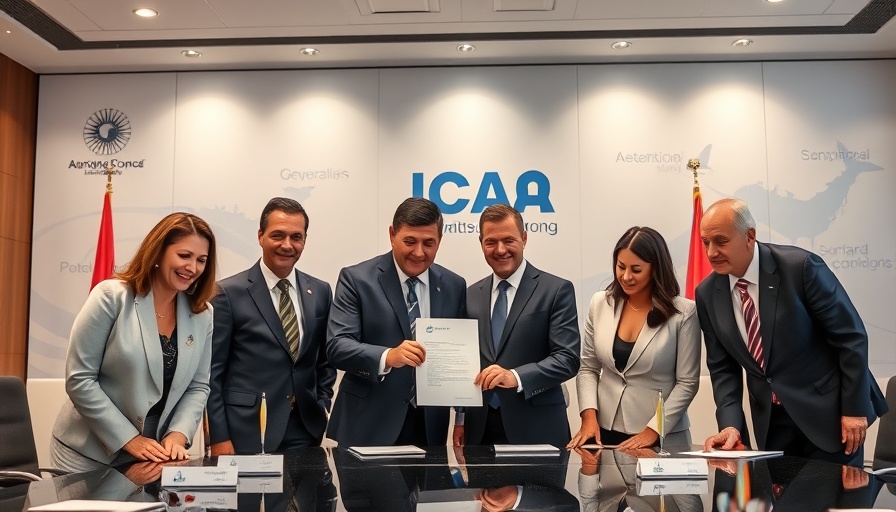
Groundbreaking Steps Towards Sustainable Aviation in Mexico
In a significant move for the aviation industry, Airbus and Volaris have taken a major step toward enhancing sustainable practices in aviation by signing a Letter of Intent (LoI) during the 2025 ICAO Aviation Climate Week. The two companies have committed to contribute to the International Civil Aviation Organization's (ICAO) Voluntary Environment Fund, aimed at promoting Sustainable Aviation Fuel (SAF) utilization in Mexico.
This collaboration centers on a feasibility study to explore potential SAF production within the country, conducted through ICAO’s Assistance, Capacity Building and Training for SAF (ACT-SAF) Program. This initiative aligns with the growing momentum worldwide to reduce carbon emissions and find environmentally friendly alternatives to traditional aviation fuels.
The Importance of Sustainable Aviation Fuel
SAF is widely recognized as a crucial component in the airline industry's efforts to curb greenhouse gas emissions. By creating a cleaner alternative, SAF not only helps airlines meet regulatory standards but also appeals to environmentally conscious consumers and stakeholders.
As part of the ACT-SAF framework, the study will coordinate with Mexico’s technical working groups responsible for developing sustainable aviation roadmaps. It meticulously examines policy frameworks, assesses potential feedstocks, and outlines effective production techniques. This meticulous approach ensures that the SAF introduced will be both viable and effective.
Future Implications for Airlines and Travelers
For airlines, logistics managers, and business travelers, this initiative signifies a transformative shift toward better environmental practices while maintaining operational efficiency. The increased availability of SAF could lead to lower operational costs and enhanced travel experiences without compromising sustainability.
Moreover, this project may inspire similar initiatives across Latin America and beyond, positioning Mexico as a leader in sustainable aviation. The ripple effect could open new trade routes and strengthen logistics networks throughout the region, improving accessibility and reducing carbon footprints globally.
Take Action for Our Planet’s Future
As we delve deeper into sustainable practices in aviation, it is imperative for stakeholders across the industry to support such initiatives actively. Engaging with programs like ICAO’s ACT-SAF can help pave the way for a greener future in aviation, ensuring that our skies remain clear and our planet healthy.
 Add Row
Add Row  Add
Add 




Write A Comment